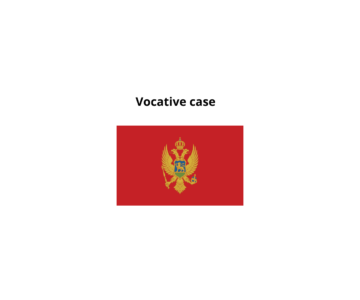The Vocative Case in Montenegrin
Since the vocative case is used when we are addressing someone or calling someone, most often one person, there are changes in the singular form only (of course there are exceptions). Addressing things or abstract concepts won’t be something you will hear in everyday conversations, but there are plenty of examples in poems and literature.…



